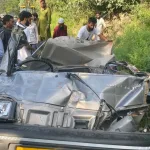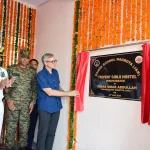In the quiet classrooms of Jammu & Kashmir, a profound transformation is unfolding—one that challenges decades of traditional educational assessment and promises to reshape how we understand learning itself. This isn’t just another incremental policy change; it’s a fundamental reimagining of education that places students at the heart of their own learning journey.
The Historical Context of Educational Assessment
To truly appreciate the magnitude of this educational revolution, we must first understand the deeply entrenched traditional assessment model that has dominated our educational landscape for generations. For decades, our educational system has been characterized by a rigid, almost militaristic approach to learning—where knowledge was perceived as a top-down transmission, and students were viewed as passive recipients of information. The colonial legacy of education, inherited from the British administrative system, created an assessment framework fundamentally designed to sort and categorize rather than nurture and develop. Examinations became gatekeeping mechanisms, with high-stakes testing determining not just academic progression but often entire social and professional trajectories. A single numerical score became a reductive factor for intelligence, potential, and worth.
In this obsolete model, learning was compressed into a simplistic numerical representation—marks became the primary currency of academic success, with little regard for the complex, nuanced process of genuine understanding. Students were systematically molded into vessels to be filled with information, their creativity and individual learning styles systematically suppressed by a one-size-fits-all approach.
The Philosophical Shift: Assessment for Learning
The new approach emerging in Jammu & Kashmir represents a radical philosophical departure from this outdated paradigm. By embracing “Assessment for Learning, assessment as learning and finally assessment of learning” educators are fundamentally reimagining the purpose and process of educational evaluation. This isn’t merely a pedagogical adjustment but a comprehensive reconceptualization of learning itself. The core principle is simple yet revolutionary: assessment should be a continuous, collaborative process that supports and enhances learning, rather than a punitive mechanism for ranking and sorting students.
The shift challenges fundamental assumptions about education. No longer are teachers’ distant arbiters of knowledge, dispensing wisdom from an elevated podium. Instead, they become learning facilitators, co-explorers who guide students through intellectual landscapes, helping them develop not just subject knowledge but critical thinking skills, emotional intelligence, and metacognitive abilities.
Innovative Assessment Techniques: A Deeper Dive
The practical implementation of this philosophical shift is equally compelling. Consider the diagnostic pre-assessments that now precede learning modules. These are not mere procedural checkboxes but erudite tools of intellectual exploration. Before introducing a new concept, teachers now employ a range of techniques—from interest surveys to concept mapping—to understand students’ existing knowledge, potential misconceptions, and learning readiness.
Ongoing assessment strategies further illuminate this transformative approach. The traditional model of assessment as a periodic, high-stakes event has been replaced by continuous, low-stakes interactions that provide immediate feedback. Techniques like colored card systems, where students can instantly signal their understanding, or quick writing exercises, quizzes, exit slips, and discussions. These techniques capture real-time comprehension, create dynamic,and responsive learning environments. Authentic assessment methods represent perhaps the most radical departure from traditional evaluation. By encouraging project-based learning, digital artifact creation, and performance assessments, educators acknowledge that intelligence is multifaceted and cannot be captured by standardized testing.
Imagine a mathematics class where students demonstrate understanding by creating a documentary about real-world applications of algebraic concepts. Or an English language lesson where learners produce podcasts, projects, and videos exploring roles, characters, values, cultures, and narratives from multiple perspectives and point of views. These approaches/strategies don’t just assess knowledge; they cultivate creativity, critical thinking, and communication skills.
Student Empowerment: Co-Constructing Learning
Perhaps the most revolutionary aspect of this new approach is the democratization of the learning process. Students are no longer passive recipients but active architects of their educational journey. By involving them in defining assessment criteria, schools are fundamentally challenging traditional power dynamics in education. Students now collaborate in creating rubrics, reflect systematically on their progress, and develop metacognitive skills that extend far beyond classroom walls. This approach recognizes that learning is not something done to students, but a process they actively participate in and shape.
The backward design methodology further reinforces this student-centric philosophy. Instead of beginning with content delivery, educators first identify desired learning outcomes, then determine assessment evidence, and finally design instructional experiences. Every educational intervention becomes purposeful, aligned with genuine learning objectives.
Practical Challenges and Realistic Implementation
It would be deceitful to portray this transformation as a seamless process. Critics—and there are many—argue that such comprehensive assessment is logistically challenging and resource-intensive. And they aren’t entirely wrong.Implementing these strategies requires significant investments in teacher training, institutional flexibility, and a fundamental mindset shift. Traditional educational bureaucracies, often resistant to change, must be reimagined. The system level functionaries, HOIs, and teachers need robust professional development programs that not only guide them on effective governance, and efficient resourcing but teach them new assessment techniques and help them internalize the philosophical underpinnings of this approach. The SCERET-JK and the allied DIETs responsible for the Human Resource holistic development need to take the lead in developing relevant modules, capacity building programmes to facilitate 360-degree emancipation of the workforce in the department. Additionally, we need workshops, orientation programmes, refresher courses and regular observation schedules so that formative assessment becomes a reality in transforming the schools of Jammu and Kashmir as the centers of excellence.
The School Education Department with its three-tier system Directorate of School Education, Jammu and Kashmir, Director SCERT-J&K, and Mission Director SamagraShiksha must pull up their socks to guide the innovative plans,programmes and implementation of NCF-SE guidelines to upskill the human resource in the department. Infrastructure poses another significant challenge. Many schools, particularly in rural and economically disadvantaged areas, lack the technological resources to support comprehensive, technology-enhanced assessment strategies. This demands not just financial investment but a holistic approach to educational equity.
Early Promising Results
Despite these challenges, early results from Jammu & Kashmir are profoundly encouraging. Schools implementing these innovative assessment methodologies report marked improvements in student engagement, deeper conceptual understanding, and more meaningful learning experiences. Students appear more motivated, displaying increased curiosity and willingness to explore concepts beyond prescribed curricula. The reduction of exam-related stress has notable psychological benefits, creating learning environments characterized by exploration rather than fear of failure.
Broader Implications for Educational Reform
This educational revolution in Jammu & Kashmir and other parts of the country is more than an extraordinary experiment. It represents a potential blueprint for national educational reform—a model that could be adapted and implemented across diverse educational contexts.In a world defined by rapid technological change and increasingly complex global challenges, we urgently need an education system that develops adaptable, critical thinkers—not just proficient test-takers. The traditional model of education, designed for an industrial era of standardization, is fundamentally misaligned with the demands of the 21st-century knowledge economy.
The approach adopted in Jammu & Kashmir offers a compelling alternative. By prioritizing learning processes over static knowledge acquisition, by recognizing individual learning styles, and by creating assessment mechanisms that support rather than sort students, we can develop more holistic, resilient educational frameworks.
Looking Towards the Future
As we observe this bold experiment, one thing becomes increasingly clear: the future of education isn’t about measuring knowledge but enabling continuous learning. Classrooms are no longer just spaces for subject transmission but environments where students learn how to learn, adapt, and grow.The silent revolution has begun. And it starts with reimagining assessment not as a judgment, but as a journey of continuous discovery and personal growth.In Jammu & Kashmir, this journey is already underway—a witness to the transformative power of innovative, and compassionate educational thinking.








